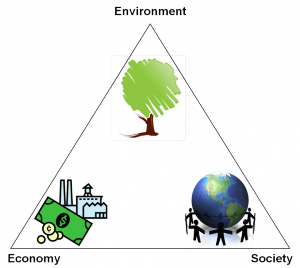INFORMATION TECHNOLOGY FOR SUSTAINABILITY
 Information technology for Sustainability is the most effective translation of the English term “Computational Sustainability,” a recent interdisciplinary sector of science that intends to propose methods and models to balance economic, social and environmental needs for sustainable development (the first international conference dates back to 2009 in the United States ).
Information technology for Sustainability is the most effective translation of the English term “Computational Sustainability,” a recent interdisciplinary sector of science that intends to propose methods and models to balance economic, social and environmental needs for sustainable development (the first international conference dates back to 2009 in the United States ).
The first official definition of sustainable development is traced back to 1987 in the report of the World Commission on Environment and Development (WCED), also known as the Brundtland commission, entitled Our Common Future. In this historical document sustainable development is defined as
“development that meets present needs without compromising the ability of future generations to meet their own”
A more modern view has identified three important sectors, whose problems are clearly dependent, and where resources must be appropriately shared and managed. The three sectors are: the environment, the economy and society.
RESEARCH ACTIVITY
The research activities are related to in the following areas of sustainability:
Information technology for environmental sustainability (specialization: protection of biodiversity)
Informatics for social sustainability (specializations: tools for online teaching, society and the individual).
Applications of information technology to environmental sustainability. Multi and inter-disciplinary research on land use estimation Environmental indicators and models for biodiversity preservation. Urban and anthropic expansion planning.Development of algorithms and systems for analysis of visual data, representation of information and creation of knowledge bases. Quality evaluation and similarity between images.
TOPICS AVAILABLE FOR THESIS
For details on thesis and research activity in progress, please contact Prof. Albanesi , email: albanesi@unipv.it).
For more information check you may also check Prof. Maria Grazia Albanesi website.
